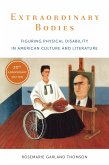In nineteenth-century America, Gillian Silverman contends, reading-and particularly book reading-precipitated intense fantasies of communion. In handling a book, the reader imagined touching and being touched by the people affiliated with that book's narrative world-an author, a character, a fellow reader. This experience often led to a sense of consubstantiality, a fantasy that the reader, the material book, and the imagined other were momentarily merged. Such a fantasy challenges psychological conceptions of discrete subjectivity along with the very notion of corporeal integrity-the idea that we are detached, skin-bound, and autonomously functioning entities. It forces us to envision readers not as liberal subjects, pursuing reading as a means toward privacy, interiority, and individuation, but rather as communal beings inseparable from objects in our psychic and phenomenal world. While theorists have long emphasized the way reading can promote a sense of abstract belonging, Bodies and Books emphasizes the intense somatic bonds that nineteenth-century subjects experienced while reading. Silverman bridges the gap between the cognitive and material effects of reading, arguing that the two worked in tandem, enabling readers to feel deep communion with objects (both human and nonhuman) in the external world. Drawing on the letters and diaries of nineteenth-century readers along with literary works by Herman Melville, Frederick Douglass, Susan Warner, and others, Silverman explores the book as a technology of intimacy and ponders what nineteenth-century readers might be able to teach us two centuries later.
Dieser Download kann aus rechtlichen Gründen nur mit Rechnungsadresse in A, D ausgeliefert werden.









